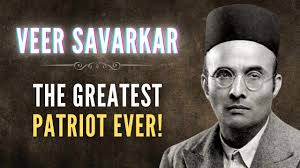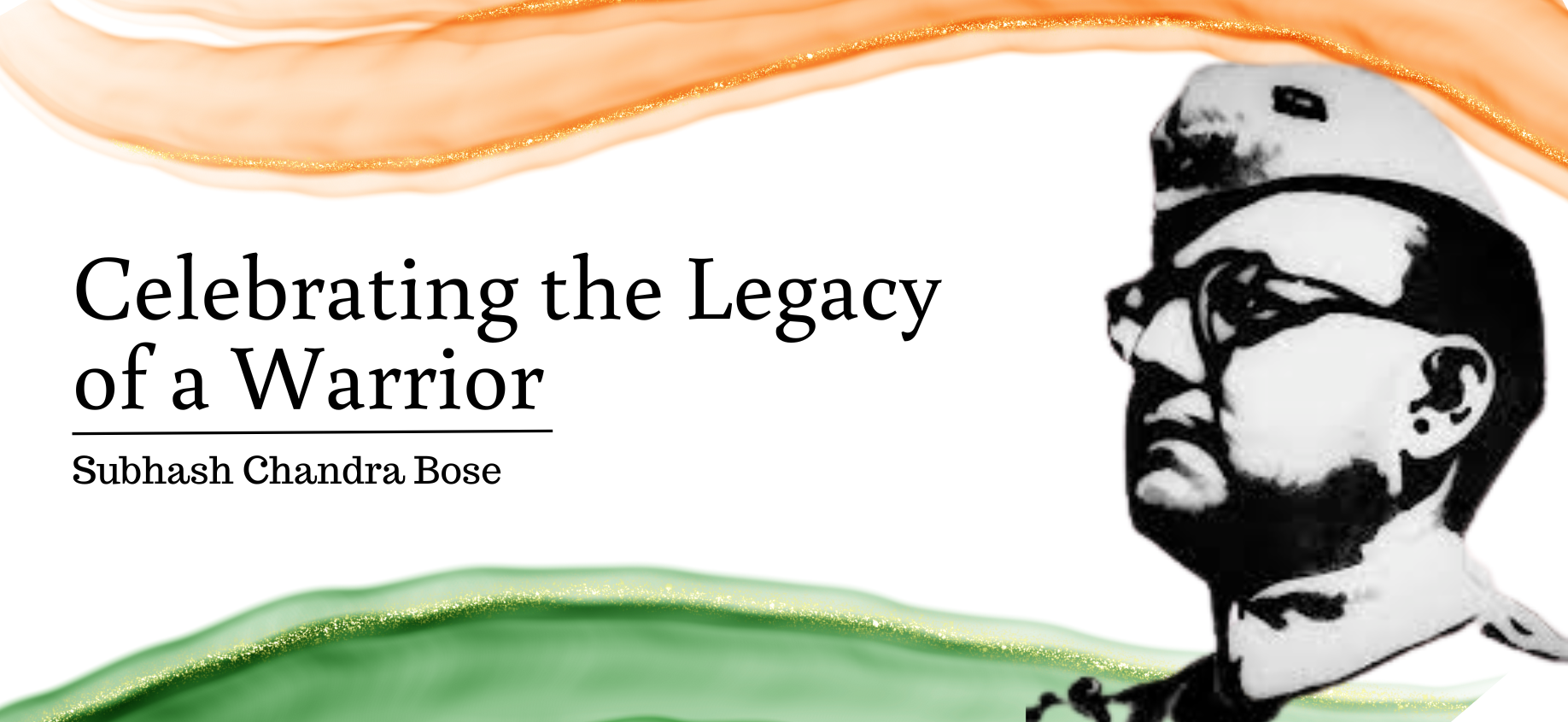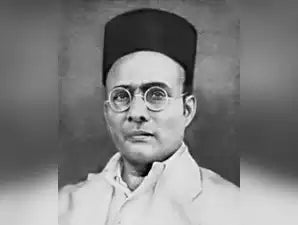
VEER SAVARKAR: THE REAL FATHER OF BHARAT
Veer Savarkar, born Vinayak Damodar Savarkar, was a towering figure in India's struggle for independence. A distinguished scholar, writer, poet, and philosopher, Savarkar's contributions to the freedom movement were instrumental and pivotal. Recently, there has been a growing debate among political leaders and historians emphasizing that Veer Savarkar should be regarded as the true father of Bharat due to his immense sacrifices and leadership.
The Foundation of Mitra Mela and Abhinav Bharat Society
Savarkar established Mitra Mela, an organization dedicated to the vision of absolute political independence for India. This organization later evolved into the Abhinav Bharat Society, which played a crucial role in the early organized efforts towards India's independence. Under Savarkar's leadership, these patriots worked tirelessly to safeguard the fundamental rights of the Indian people.

The Concept of Hindutva
Veer Savarkar was a revolutionary figure who introduced the concept of ‘Hindutva’. In his seminal work, “Essentials of Hindutva,” he explored various social issues and advocated for a practical approach to societal transformation to sustain against foreign forces. Savarkar's vision of Hindutva emphasized a united and culturally integrated India.
GET YOUR VEER SAVARKAR MERCHANDISE HERE!
Advocacy for Social Reform
Savarkar emphasized that figures like the Pandavas from Hindu mythology were not divine beings but examples of inter-caste mixing, suggesting that caste boundaries were historically blurred. He strongly advocated for inter-caste marriages and highlighted the importance of inter-caste blending in creating a diverse Indian population.
Pioneering Efforts in the Independence Movement
Savarkar's contributions to the Indian independence movement are numerous and significant. He was the first political leader in the 1900s to call for absolute political independence. He organized one of the first bonfires of foreign clothes in protest against British rule. Despite being a brilliant law student, he was denied entry to the English Bar due to his active participation in the freedom movement. Savarkar's revolutionary activities extended to an international level, and his book advocating independence was banned by the British government in 1909.

Daring Escapes and Imprisonment
Veer Savarkar is remembered for his daring escape and subsequent arrest in France. In 1911, he was stripped of his degree from the Indian University for being an active participant in the freedom movement. Even in prison, deprived of pen and paper, he composed poems on the walls using nails and thorns, memorizing them to spread his powerful messages later.
Legacy and Recognition
Despite his relentless efforts and significant contributions, Veer Savarkar's role in India's independence movement has often been underappreciated. His vision of a free nation grounded in the values of Hindutva and his unwavering dedication to India's independence make him a true father figure of the nation. His impact, alongside other freedom fighters like Bhagat Singh and the Indian Army, underscores the relentless spirit of those who fought for India's freedom.
Conclusion
Veer Savarkar's contributions to India's independence movement were unparalleled. His establishment of Mitra Mela and the Abhinav Bharat Society, his introduction of the concept of Hindutva, and his advocacy for social reform were instrumental in shaping the freedom struggle. Savarkar's pioneering efforts, daring escapes, and relentless drive for a free and independent India solidify his place as a pivotal figure in Indian history. His legacy continues to inspire future generations to fight for freedom and justice.
[The images used in this blog post are not owned by Anime Devta, they are just for entertainment purposes]
| VEER SAVARKAR | BHAGAT SINGH | FREEDOM MOVEMENT | INDIAN INDEPENDENCE | FREEDOM | INDIAN ARMY |
~Mimansa Sharma

